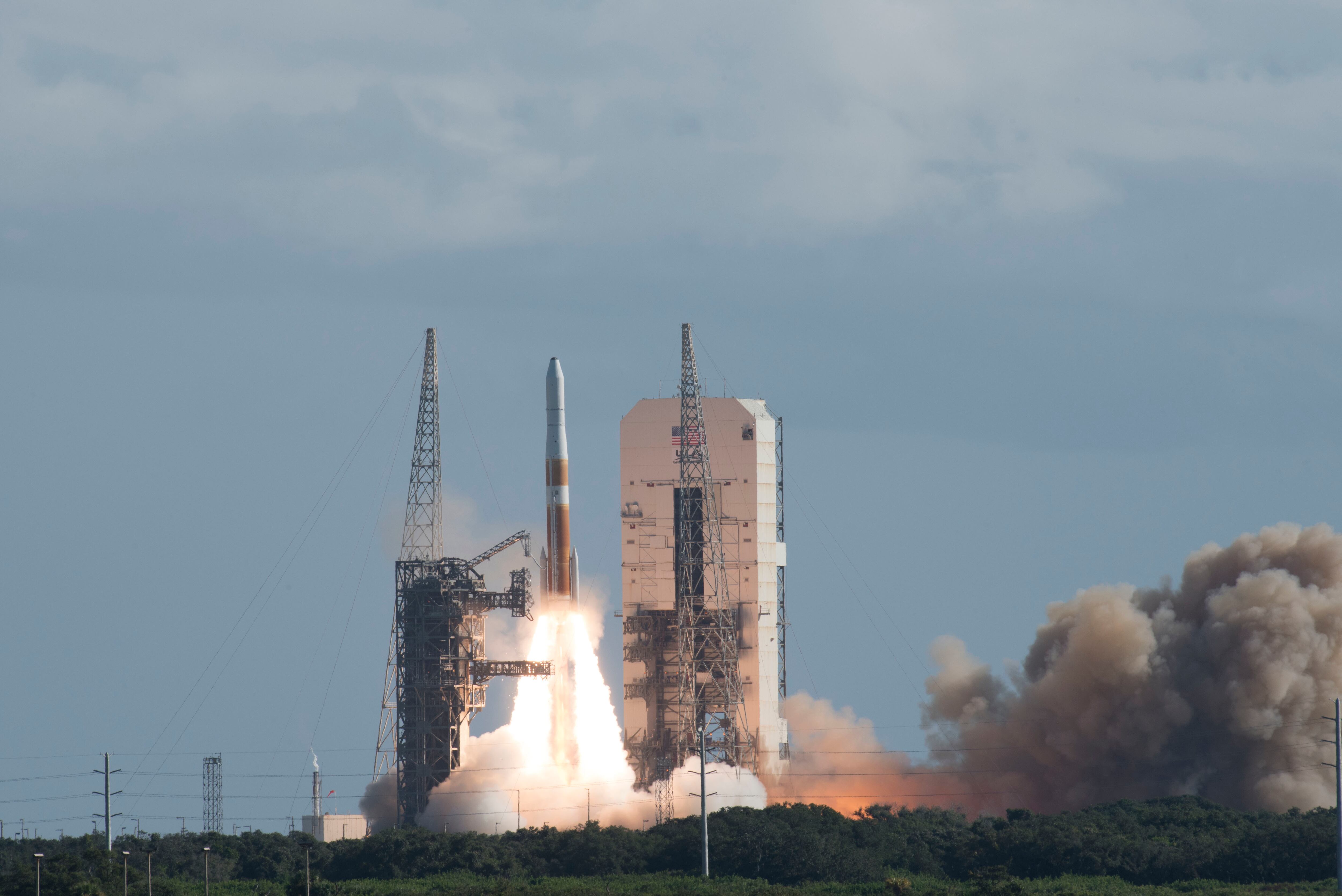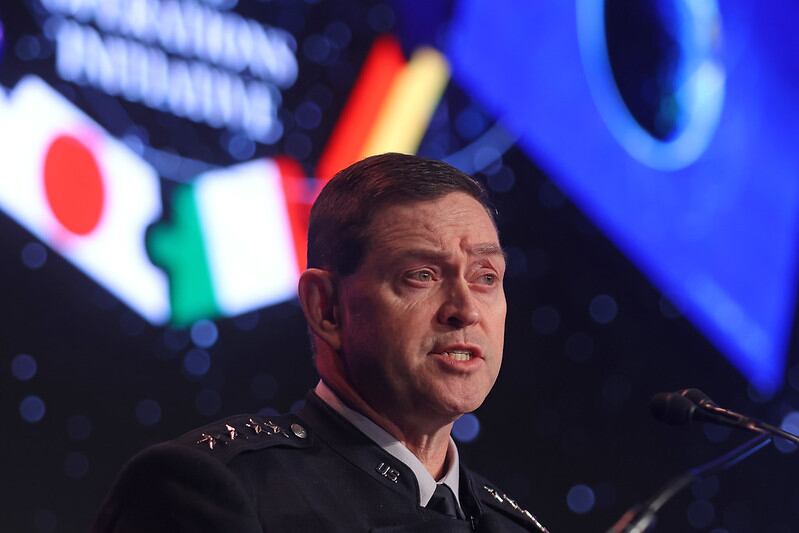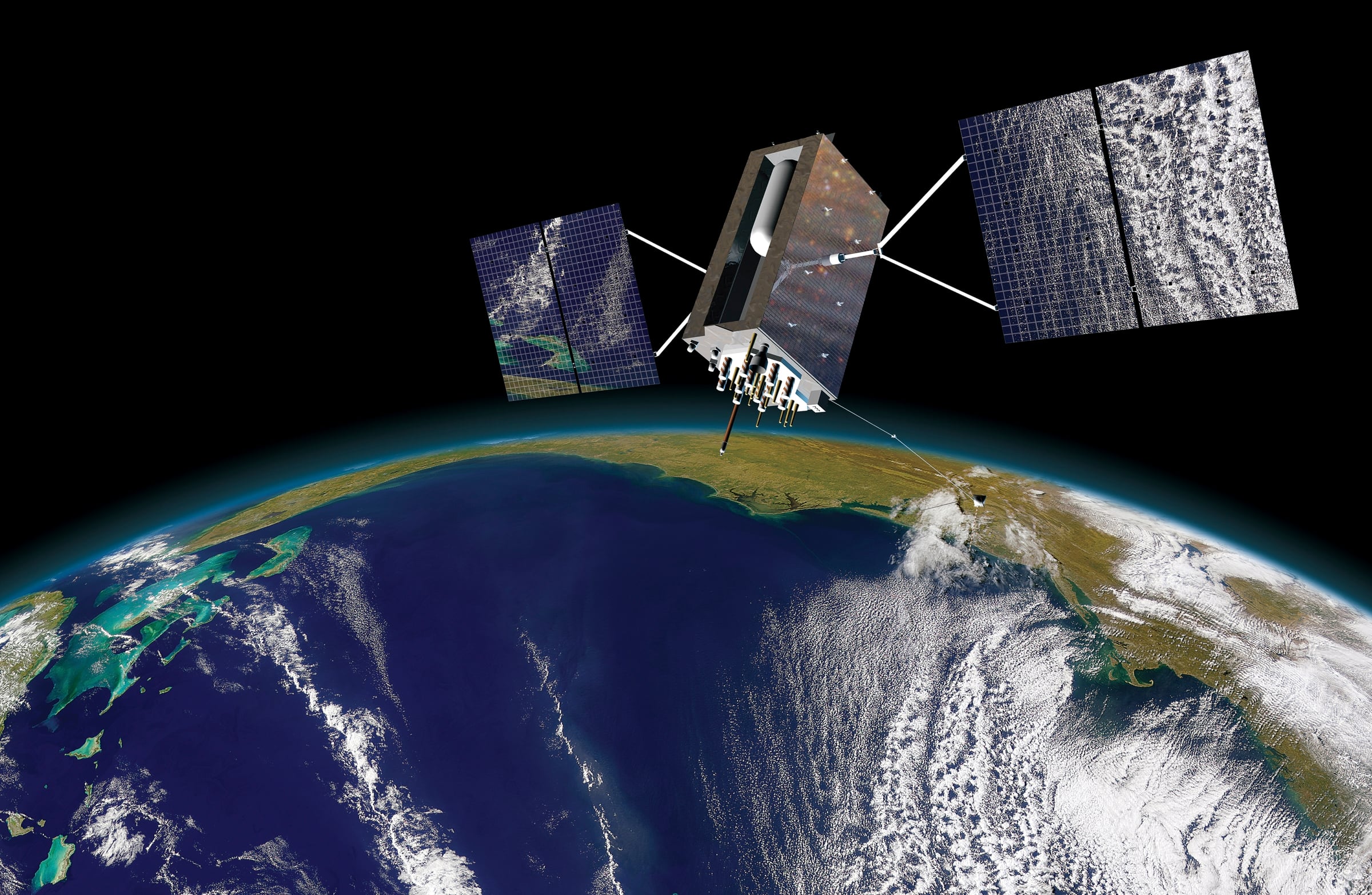WASHINGTON — War fighters can access a limited version of a new, more secure military GPS signal, after the U.S. Space Force recently declared a necessary upgrade to the ground system operational.
More accurate than the civilian signal, the encrypted M-Code programming language provides advanced anti-spoofing and anti-jamming capabilities designed to provide positioning, navigation and timing data to the war fighter even when adversaries are trying to block or degrade the signal. But even as the military has successfully added more and more GPS satellites with M-Code availability — 23 and counting — the ground system being purpose-built for GPS III and M-Code is years behind schedule. According to a 2019 Government Accountability Office report, the $6.2 billion Next-Generation Operational Control System (OCX) being built by Raytheon Technologies is five years behind schedule, and the government doesn’t expect it to be delivered until June 2021.
To provide access to M-Code sooner, the Air Force tasked Lockheed Martin in 2017 with building an upgrade to the current ground system called M-Code Early Use (MCEU), a more limited version of M-Code that will operate until OCX is ready. Installation of the hardware and software upgrades for MCEU was officially completed in July.
On Dec. 4, the Space Force announced that MCEU had received operational acceptance Nov. 18, meaning war fighters with the appropriate user equipment can now request access to the M-Code signal.
“MCEU ushers in a new era of GPS support that will provide operators across the warfighting domain with assured PNT access while further preventing unauthorized use by our adversaries. This is a critical step in remaining the gold standard of PNT systems and promoting a peaceful, secure, stable and accessible space domain,” said Lt. Jordan Malara, 2nd Space Operations Squadron GPS Warfighter Collaboration Cell assistant flight commander, in a statement.
The early-use version of the ground system allows the Space Force to task, upload and monitor M-Code within the GPS constellation, and the branch will use the system to support the testing of new military GPS user equipment.
“M-Code’s more secure, harder-to-jam and spoof signals are critical to helping our war fighters complete their missions, especially in contested environments,” said Maria Demaree, vice president and general manager for Lockheed Martin’s Mission Solutions line of business. “This upgrade to the current GPS ground control system, and the launch of more modernized GPS III satellites, is making M-Code’s full-fielding a reality.”
CORRECTION: An earlier version of this story mistakenly referred to Contingency Operations, a separate GPS ground system upgrade developed by Lockheed Martin.
Nathan Strout covers space, unmanned and intelligence systems for C4ISRNET.








